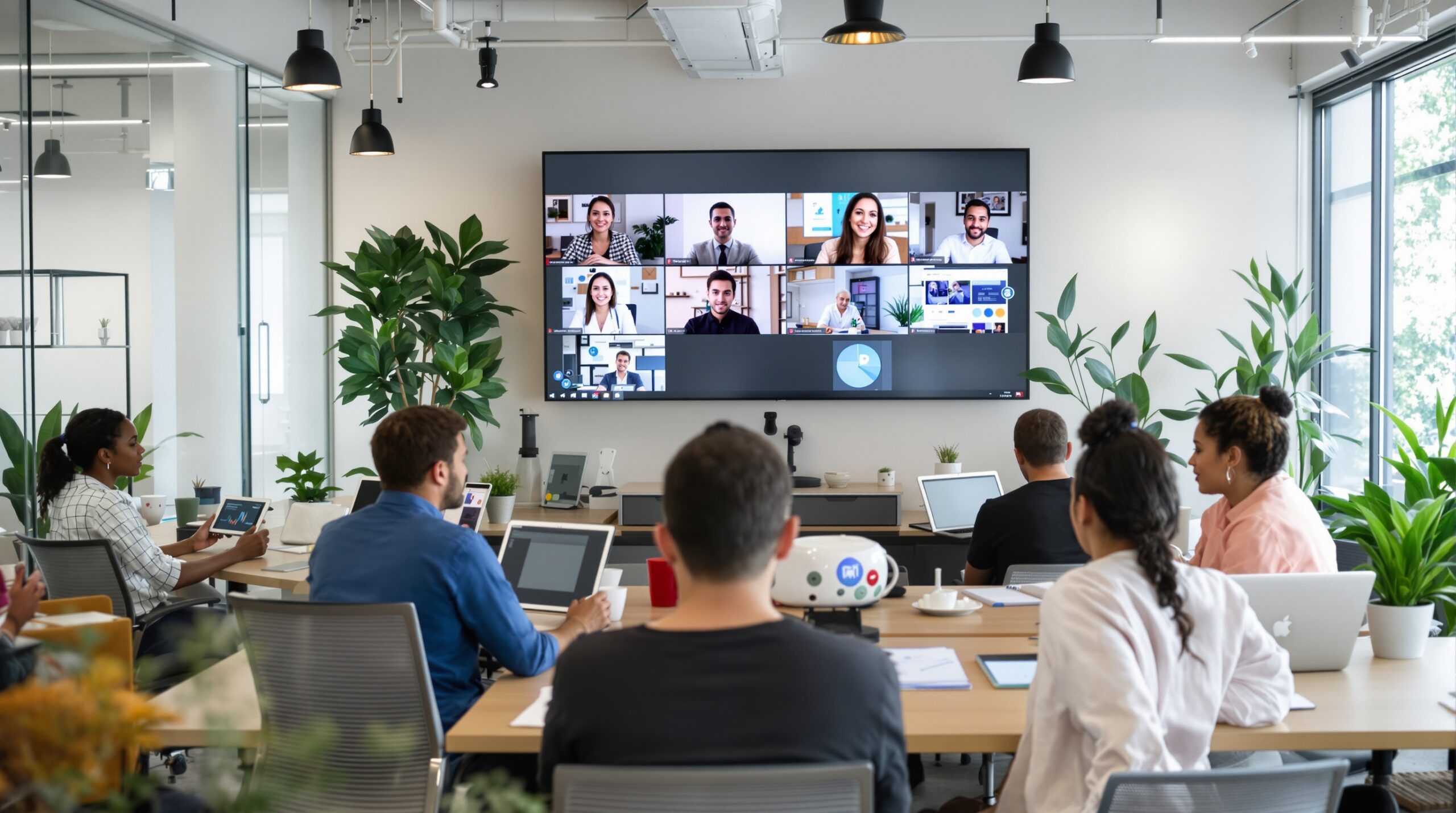Artificial Intelligence (AI) has rapidly emerged as a game-changer in the modern workplace. Remote work, once seen as a challenge, has now evolved into an efficient and productive environment, largely due to advancements in AI technology. Across diverse industries, AI-driven solutions redefine how employees collaborate, automate tasks, and maintain high performance from any location. As organizations seek ways to optimize workflow, AI offers innovative tools and strategies that significantly enhance productivity.
The Role of AI in Streamlining Communication
Effective communication stands at the heart of productive remote teams. AI-powered platforms like chatbots and virtual assistants ensure team members stay connected and informed. Natural language processing tools transcribe meetings in real time, making information more accessible to everyone. Sentiment analysis tools even monitor conversations, offering insights into team morale and engagement. These advancements help managers address issues early and promote a transparent work culture.
Task Automation and Workflow Optimization
Remote work often involves juggling many repetitive tasks and responsibilities. AI automates daily workflows, enabling teams to focus on higher-level problem-solving. For example, AI-driven scheduling tools analyze calendars to set up meetings without human intervention. Automated data entry applications can process large volumes of information quickly and accurately. As AI streamlines routine activities, organizations benefit from increased accuracy and time savings.
Intelligent Project Management Solutions
AI-based project management software keeps remote teams aligned and on track. These platforms analyze deadlines, track progress, and flag potential bottlenecks. Predictive analytics anticipates delays, allowing managers to reassign tasks and resources efficiently. Such intelligent systems foster accountability and help distributed teams work toward common goals with minimal friction.
Enhancing Collaboration with AI-driven Tools
Collaboration can be challenging for geographically dispersed teams. AI-powered platforms bridge gaps, creating virtual spaces for brainstorming and teamwork. Cloud-based collaborative tools recommend resources and connect employees with subject matter experts based on ongoing projects. Suggestive tools assist with document editing and offer real-time language translation, breaking down communication barriers globally. These AI features make teamwork smoother, regardless of team members’ physical locations.
Personalized Learning and Development
Continuous learning drives productivity in remote work environments. AI-powered learning management systems deliver tailored educational content to employees based on their roles and skill gaps. By tracking individual progress, these systems recommend personalized courses and set achievable development milestones. Automatic reminders help employees stay engaged with training, while analytics help managers assess knowledge retention and course effectiveness. This targeted approach fosters professional growth and boosts overall team performance.
AI in Performance Monitoring and Feedback
Managers often struggle to monitor remote employees’ performance fairly and consistently. AI offers objective performance tracking by analyzing work patterns and output. Time tracking applications measure productivity, providing managers with insights into daily progress and workload distribution. Feedback tools can prompt employees for self-evaluations and gather peer reviews, encouraging continuous improvement. This creates a transparent environment where both managers and employees understand expectations and acknowledgments are based on real contributions.
Revolutionizing Workspaces with Smart Scheduling
AI-driven scheduling solutions solve one of remote work’s biggest challenges: coordinating meetings across time zones and varied schedules. These tools analyze participants’ availability, calendar preferences, and time zone data to recommend optimal meeting times. Smart scheduling minimizes oversights and reduces time spent negotiating meeting slots. Automated reminders and adjustments further smooth the process, allowing workers to focus on critical tasks rather than logistics.
Security and Data Protection in Distributed Environments
With remote work comes the increased risk of cybersecurity threats. AI plays a vital role in defending sensitive data and information systems. Machine learning algorithms continuously monitor network activities and detect irregular behavior instantly, alerting IT teams to potential breaches. Automated security updates and smart authentication protocols help prevent unauthorized access, ensuring confidential business information remains protected. This layer of intelligent defense is essential in a remote work era, where threats can surface anywhere and anytime.
AI Across Various Industries
AI technologies support productivity enhancements in multiple fields. In healthcare, AI enables remote diagnostics, supporting medical professionals in real-time consultations with patients. Financial services use AI for fraud detection, data analysis, and customer support, maintaining consistent productivity from remote offices. In education, AI-powered learning platforms personalize student experiences while assisting teachers with grading and curriculum planning. Manufacturing industries deploy AI to monitor supply chains remotely and automate routine operations, ensuring an uninterrupted workflow.
Fostering Employee Well-being and Work-Life Balance
Employee well-being remains a top priority for successful remote organizations. AI chatbots offer stress management advice and pulse surveys to measure team satisfaction. Analytics tools recommend workloads that promote healthy work-life balance, reducing burnout rates dramatically. Managers receive timely suggestions to check in with team members at risk of overwork or disengagement. By integrating these tools, companies create a supportive and productive remote work culture that values employee wellness as much as output.
Challenges and Considerations
Despite its benefits, adopting AI-driven tools brings unique challenges. Data privacy, ethical use, and the potential for algorithmic bias are concerns that require attention. Businesses must develop clear policies and ensure transparent communication to foster trust in AI solutions. Continuous training helps both employees and leaders adapt to new technologies responsibly. As organizations navigate these complexities, they can unlock the potential of AI without compromising ethical standards.
The Future of Remote Work with AI
The future of remote work promises even deeper AI integration. Augmented reality, advanced robotics, and AI-driven decision-making will reshape the digital workplace. As these technologies evolve, employees will access smarter tools and greater autonomy. Organizations ready to embrace these advancements will enjoy increased flexibility, productivity, and global reach. By adopting AI strategically, businesses future-proof their remote work models and ensure long-term growth and resilience.
Conclusion
AI technology revolutionizes remote work by offering unprecedented enhancements in productivity, collaboration, and employee well-being. From automating routine tasks to strengthening digital security, AI transforms the remote workplace across industries. Although challenges remain, the continuous evolution of AI solutions offers a strong foundation for the future of work. Embracing these technologies empowers organizations to thrive in an increasingly distributed and dynamic global economy.


